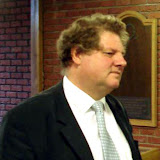Luke 16 1-9 The dishonest manager
In some ways Luke might be termed the middle class gospel. It is punctuated by dinner parties and journeys. Many of the characters in the parables seem to be middle managers, those who are squeezed by rapacious bosses and discontented clients be they peasants or merchants. Luke the doctor dealt with the middle class and had an ear for the stories that dealt with his own social group. Jesus had business experience: he ran a jobbing builder’s business. He would have been familiar with many of the money problems he dealt with in parables such as this.
In 1st century Jewish life lending money at interest was illegal. There were, however, ways around this. You worked out a figure for interest and added it to the sum that had been borrowed. So if a sum of £100 were borrowed over a period of 4 years it (given typical interest rates of approximately 25% per annum) the total debt would be called £200. Some interest rates were reckoned to be as high as 50%, depending on the commodity in which debts were to be paid. Oil was generally paid back at the higher rate.[1]
In this story the landowner is a plutocrat who lived richly on the earnings of his estates or businesses abroad. Imagine: your boss spends most of his time living it up in his villa in Spain - leaving the agent in Britain to finance his comfortable lifestyle - he floats out all day in the pool because he has a reliable man back in blighty handling the sharp end. However, back in Britain, the manager is having colossal problems getting in the debts. The debtors accuse him of fiddling the books and squandering the master’s assets.. And he is called into the boss’s office and the boss says he wants to see the books. The manager knows that when he sees the books the boss will see how unsuccessful he has been in getting the payments on the loans. He also knows that he cannot survive in the world without the support of either the clients or the boss. In such a scenario he decides that he can only side with the debtors. He calls them in one by one to lower their bargaining power, reduces their debts and hopes he can then escape into their company and avoid the wrath of the boss. In effect he halves the rate on oil from the extortionate 50% to the more normal, but still excessive 25%, and reduces the interest on corn from 25% to 20%. By rewriting the contracts the manager seizes the initiative and makes both the boss and the peasants dependent on him.
The boss responds realistically. He says AI knew when I employed you were a sharp guy@ and keeps him in post. He has no choice: to reinstate such crippling interest rates would risk insurrection among the clients: they would support the manager against him. If he sacked the manager he would then be exposing a new manager to the power of a client community who had succeeded in getting one manager sacked and would be keen to try out their apparent power on a new and inexperienced manager. He recognises that his income is still adequate and is grateful to the manager for the adroit way in which he handled a potentially difficult situation.
At the end of this story there has been a total transformation. The rule of the ancient economy was that masters distrust managers, peasants hate managers and managers cheat both masters and peasants. But now, peasants praise their master, the master commends the manager and the manager not only keeps his job but relieves his community of a little of the crippling burden of debt that is crippling it.[2] In the late nineteenth century the American evangelist Dwight L. Moody was on a preaching tour in England creating a stir. A group of Church of England clergy came to call on Moody saying, "What we don't care for Mr. Moody is your way of doing things." Moody thought the complaint over for a moment and said, "I don't care much for it either, but I prefer it to your way of not doing things."
Luke typically sets this story in the context of Jesus’s journey to Jerusalem. Soon all the accounts were going to be gathered in. The disciples could not go on playing political games, having a foot in each camp. The time was coming for decision making. At that time it would be important to know who is your best friend. It was not going to be Pilate, nor Caiaphas but the one on the cross however unobvious that might have seemed.
When we have a choice do we side with the powerful or the powerless? Our place is with those who have the enormous debts. Perhaps once the middle manager had hoped that the would end up with the villa in Spain - he ends up going out for a pint with those he would never have dreamt of mixing with. Do we side with the big multinational corporations - Nike, MacDonalds or the small traders desperately wanting fair trade?
